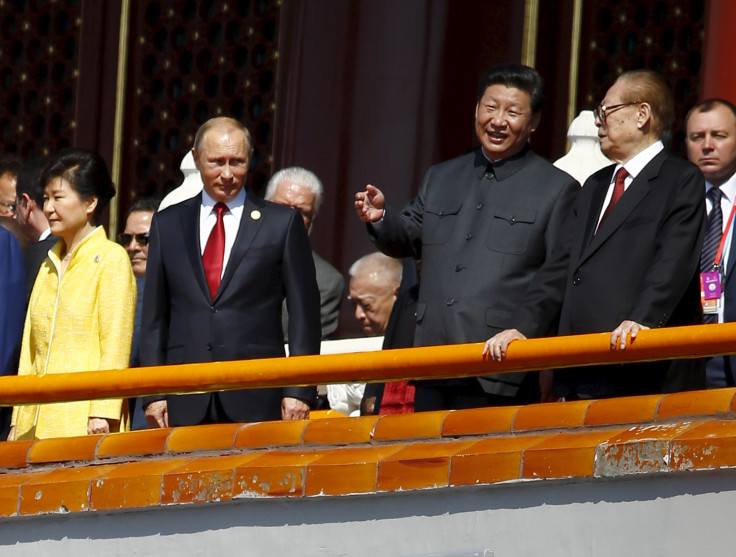In South China Sea War, Would Russia Battle United States To Defend China? Moscow And Beijing Draw Closer

China and Russia began eight days of military exercises in the South China Sea near southern China's Guangdong province Monday in the latest sign that Moscow is playing a role in growing tensions between Beijing and the United States over the contested waters.
The "Joint Sea-2016" naval exercise involves surface ships, submarines, fixed-wing aircraft, ship-borne helicopters and marines. Russian and Chinese troops will practice defense, rescue and anti-submarine operations, as well as "island seizing," according to a statement from China's navy.
The commander of the U.S. Pacific Fleet, Adm. Scott Swift, has expressed displeasure with the exercise. "There are other places those exercises could have been conducted," he said during a visit to China last month. He described the drills as part of a series of actions, "that are not increasing the stability within the region."
The naval exercises mark the largest joint operation held by the two countries' navies and comes as the U.S., Japan, Vietnam and other nations are challenging China's territorial claims in the region. After an arbitration court in The Hague ruled in July that China did not have historic rights to the South China Sea, China denounced the ruling and refused to recognize the court. Relations between Washington and Moscow have been cold in recent years after Russia annexed in 2014 the Crimean peninsula from Ukraine, drawing outrage from European leaders.
China and Russia are important economic and military powers with complicated relations with Washington. Both are veto-wielding members of the U.N. Security Council and have taken stances against U.S. interests in the past.
China claims ownership over most of the South China Sea, a strategic region that sees more than $5 trillion in trade each year. While the United States has challenged Beijing's assertions, Russia has been the only major nation to defend China's sovereignty in the region, the Associated Press reported.
"We do not interfere and we believe that any intervention of a non-regional power goes only to the detriment of settling these issues. The intervention of third-party non-regional powers, in my opinion, is harmful and counterproductive," Russian President Vladimir Putin said after The Hague ruling.
Russian Prime Minister Dmitry Medvedev has also criticized any "interference from forces outside the region."
Military analysts have been closely watching for any signs that could point to a looming war over the South China Sea, but China has said this week's naval drills are not aimed at any other country, Reuters reported. The exercise is part of an annual program which "aims to consolidate and advance the Sino-Russian comprehensive strategic partnership of coordination, and deepen friendly and practical cooperation between the two militaries," Chinese navy spokesman Liang Yang said.
"It will also improve coordination between the two navies on joint defense operations at sea," he added.
Mikhail Alexandrov, the head expert at the Center for Military and Political Studies at the Moscow State Institute of International Relations, has suggested in the Russian press that Moscow is taking sides against Washington.
"A reconfiguration of forces is taking place around the world. The strength of power centers independent from the West, among them Russia, China, India, Iran and Brazil, is growing. And the United States can no longer control the entire planet. Once they get involved in some kind of confrontation with any one power center, the others take the opportunity to spread their influence," he told reporters.
© Copyright IBTimes 2024. All rights reserved.












